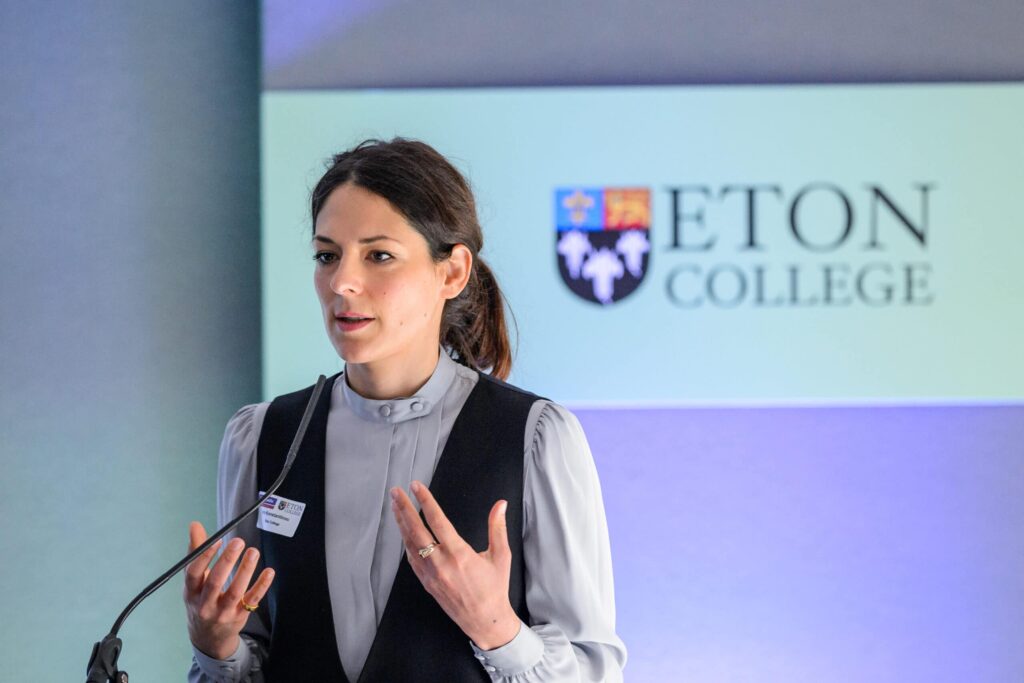This week’s blog post is based on Chapter Three of Jared Cooney Horvath and David Bott’s book entitled 10 Things Schools Get Wrong: And How We Can Get Them Right. This chapter formed the basis of this week’s Teaching and Learning Reading Group, based here at Eton.
This chapter deals with a number of issues surrounding our reliance on grades and assessments in schools. Interestingly, the method of judging students against one another was only devised in the late 1700s by a Professor from Cambridge University.[1] William Farish devised this method of quantitative grading initially as a means to effectively enrol students on his course.[2] However, it has now become so ingrained in our teaching philosophy that very few stop to question the validity of reducing individuals to a numeric or alphabetic value.
Horvath and Bott begin their chapter by asking readers to consider the ways in which teacher ideologies create bias. An ideology, they argue, is a bias that ‘organises the world in a particular way; …elevates some aspects of reality over others; that redefines common terms; [and that]… dictates what can (and cannot) be meaningfully accomplished’.[3] As such, the tools we draw upon to teach and assess our students are therefore inevitably distorted by our various worldviews.
Socrates’ reluctance to write anything down is drawn upon as an example of this.[4] Plato’s rendition of the story of Thamus and Thoth, suggests that the act of writing can indirectly have a detrimental effect on human memory and wisdom. Horvath and Bott argue that ‘the impact of a tool cannot be judged by how it’s employed; it must be judged by how it shifts a culture’s worldview’.[5]
However, they claim that grading – whether through letters, numbers or percentiles – is a teaching tool which is imbued by an ideology summed up by reification, quantification and ranking.
– Reification: this is the process of treating an immaterial concept, thought or idea as a material thing. For example, beauty is immaterial but is often reified through the idea of symmetry.[6]
– Quantification: once an immaterial concept becomes a concrete thing, we can then assign value to it.[7]
– Ranking: quantifying something means that we can then organise it through ranking.[8]
If the system of assessment and grading relies on these ideologies, then we are essentially espousing a worldview where all human thoughts, skills and qualities must be reified in order to be considered real; quantified in order to be understood; and subsequently ranked in order to be useful. Horvath and Bott argue that herein lies the problem.
Why is this an issue?
Grading forces students to become more reliant on external validation and this drives their sense of self-worth and accomplishment. What impact does this have on pupils?[9]
Another issue raised by Horvath and Bott concerns the type of skill we wish to teach our students. Essential skills like creativity, critical thinking and collaboration are metaphysical, theoretical and subject to change.[10] Therefore, they are highly resistant to this process of reification, quantification and ranking. Horvath and Bott argue that, as a result, there is a concern that skills such as these will be sacrificed in place of those which can be explicitly measured.[11]
If senior leaders continue to perceive improving grades as paramount, then this ideology can reduce teaching to a set of behaviours that either elevate or diminish rankings. Any teaching technique which does not raise grades is subsequently called into doubt.
Until there is a paradigm shift in regards to our approach towards grading and assessment, there are a number of things you can do to help alleviate some of these issues.
What can you do now?
- Grades and assessment are not synonymous. Assessment can be used to provide students with personalised feedback and by using past and present performance, can also help drive future performance. Grades are not necessary in this process.
- Once numerical values are removed then ‘success criteria’ can become more nuanced. Success should be defined in a way which is flexible, contextual and reflective of the student’s progress.
- Do not only ‘teach to the test’. Whilst it’s important to prepare our students for standardised, public examinations, teaching can also include deep, nuanced and non-binary learning, Horvath and Bott argue.
- Use formative assessments. The goal of formative assessment is to monitor student learning and to provide ongoing feedback that can be used by practitioners to improve their teaching and by students to improve their learning.
- Effort grading can sometimes be more effective. If you need to give a grade, assess for effort and not in accordance with the standardised benchmark. Some students may not have achieved highly even though they have tried their best. Good effort should be rewarded.
[1] K. Hoskin, ‘The Examination, Disciplinary Power and Rational Schooling’, History of Education, (1979), Vol. 8, pp.135-146.
[2] N. Postman, Technopoly: The Surrender of Culture to Technology, (New York, Knopf, 1993), p.13.
[3] J. Horvath and D. Bott, 10 Things Schools Get Wrong: And How We Can Get Them Right, (Woodridge: John Catt, 2020), p. 39.
[4] B. Jowett, The Dialogues of Plato in Five Volumes, (Oxford: Oxford University Press, 1892), pp.483-484.
[5] J. Horvath and D. Bott, 10 Things Schools Get Wrong: And How We Can Get Them Right, (Woodridge: John Catt, 2020), p.40.
[6] M. T. Taussig, Reification and the Consciousness of the Patient, Social Science & Medicine: Medical Anthropology, (1980), Vol.14, pp.3-13.
[7] S. J. Gould, The Mismeasure of Man, (New York, W. W. Norton & Company, 1981).
[8] A. Sfard, Reification as the Birth of Metaphor, For the Learning of Mathematics, Vo.14, pp.44-55.
[9] A. Lowen, Narcissism: Denial of the True Self, (New York, Simon & Schuster, 1985).
[10] Ithaca Group, ‘Everybody’s Core Business’, Supplementary Report: Findings from the Literature Online, Available: <https://www.google.com/url?sa=t&rct=j&q=&esrc=s&source=web&cd=&cad=rja&u act=8&ved=2ahUKEwicz8Kv35zsAhVf4nMBHb0QDoEQFjAAegQIARAC&url=htt ps%3A%2F%2Fdocs.education.gov.au%2Fsystem%2Ffiles%2Fdoc%2Fother%2Feverybodys_core_business_- _supplementary_report.pdf&usg=AOvVaw3LDPJw0Mlw2w0tjga1yuKL> Accessed: 11 November 2021.
[11] V. Strauss, ‘What’s the Purpose of Education in the 21st Century?’, Washington Post Online, Available: <https://www.washingtonpost.com/news/answer-sheet/wp/2015/02/12/whats-thepurpose-of-education-in-the-21st-century/> Accessed: 11 November 2021.




